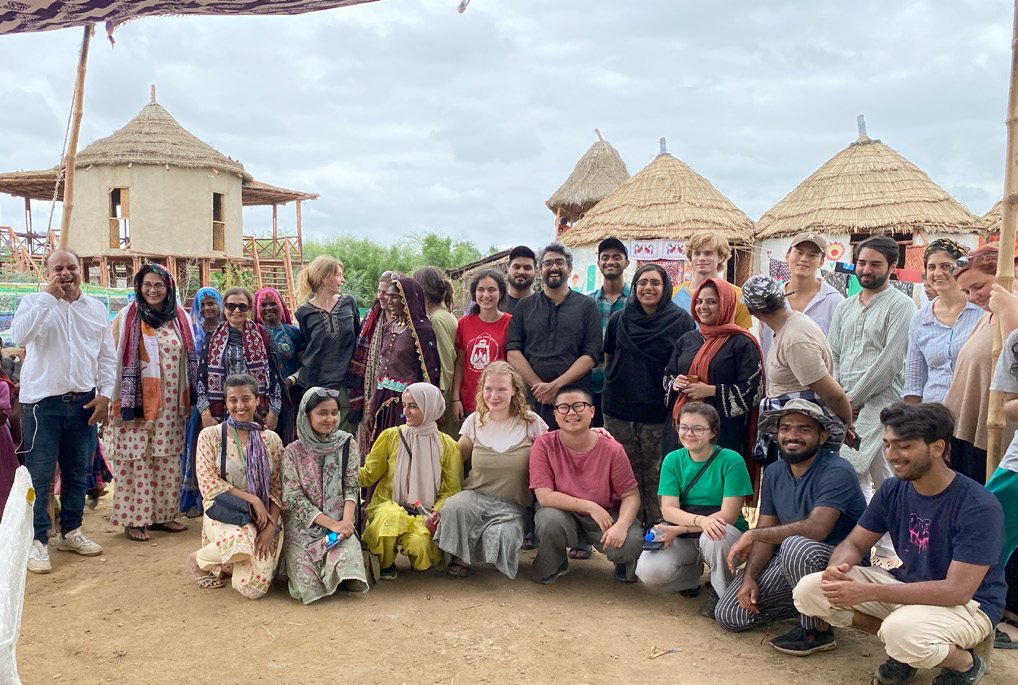The Heritage Foundation of Pakistan, in collaboration with INTBAU, completed three programmes of workshops delivered between December 2022 and January 2024. These brought a total of 68 international and Pakistani delegates to Sindh to learn from Yasmeen Lari’s climate responsive techniques. These groups included students, researchers, and faculty members practicing in the field of architecture, design and the built environment and at various stages of their careers to engage with local communities, learn low-carbon construction techniques, and contribute to building disaster resilience in one of the most climate-affected regions in the world.
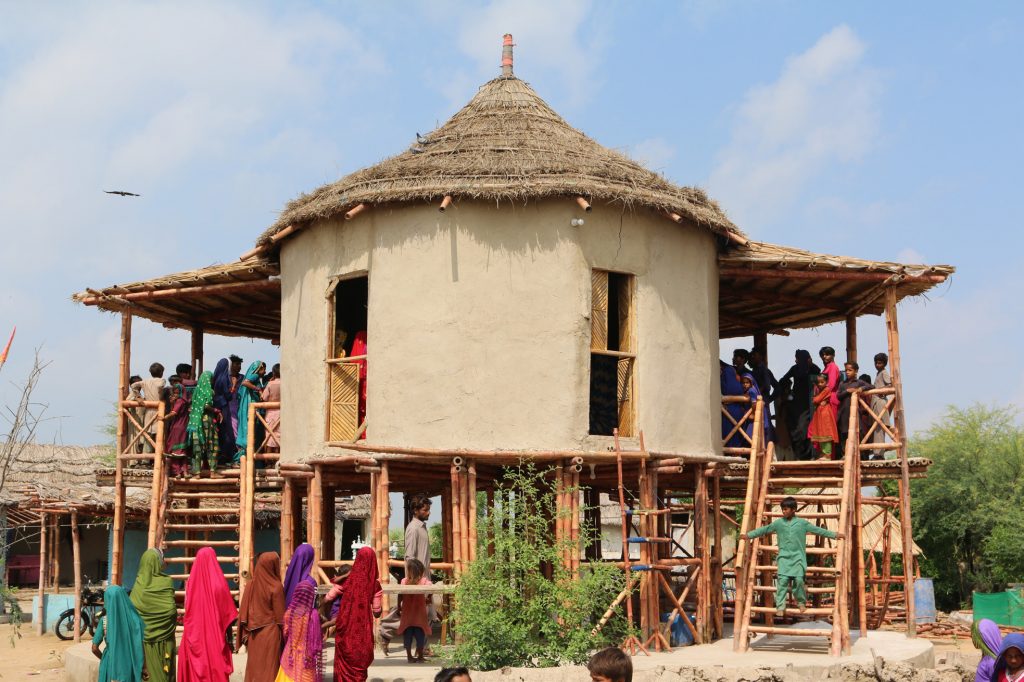
Climate Change and Vulnerable Communities
Pakistan has been increasingly vulnerable to climate-driven disasters, with the devastating floods of 2022 displacing over 33 million people. The rural communities in Sindh province were among the most affected, with many villages still recovering from the aftermath. In response, these workshops were organised to explore sustainable, community-driven rebuilding efforts using traditional materials and methods that are well-suited to the local environment. In response, INTBAU has partnered with RIBA Gold Medallist Yasmeen Lari to work with students on understanding how Pakistani communities have responded to this challenge.
In Pono Eco Village, a resilient community of 1,000 families has emerged, with locals employing low-carbon construction techniques that integrate materials like bamboo, clay, and lime. These methods are not only affordable but also environmentally sustainable, making them ideal for regions grappling with the effects of climate change.
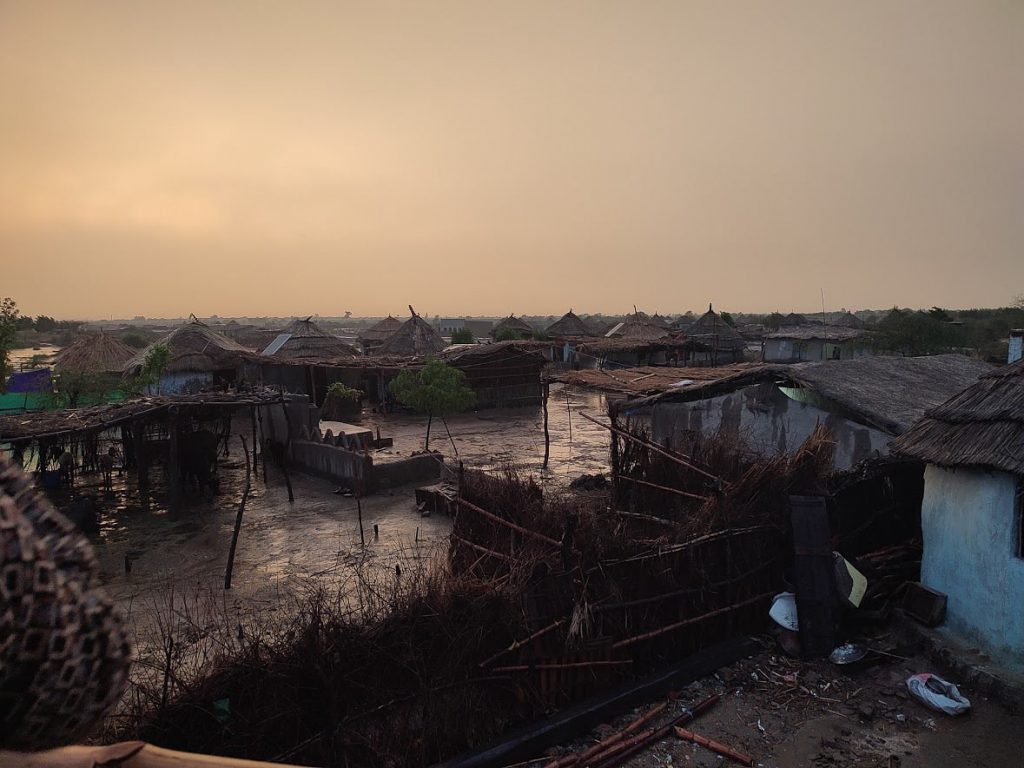
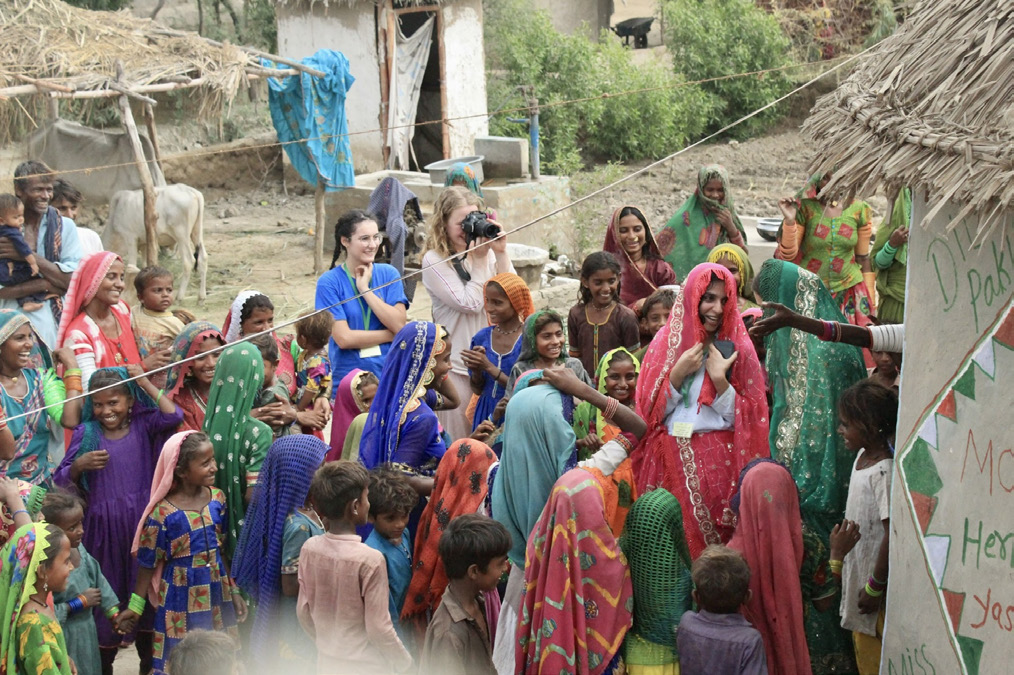
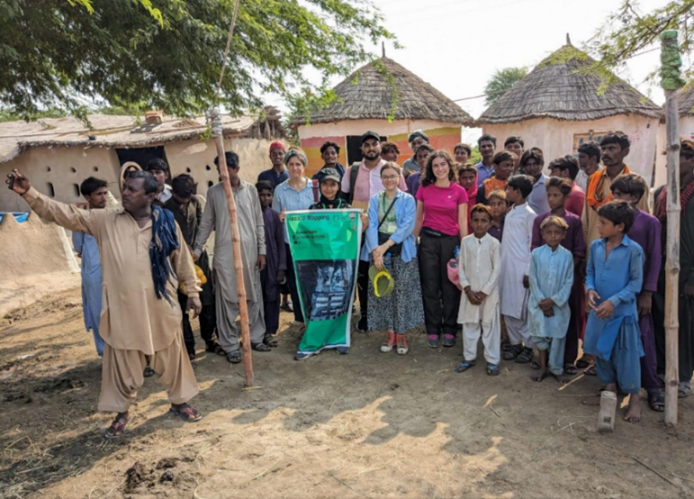
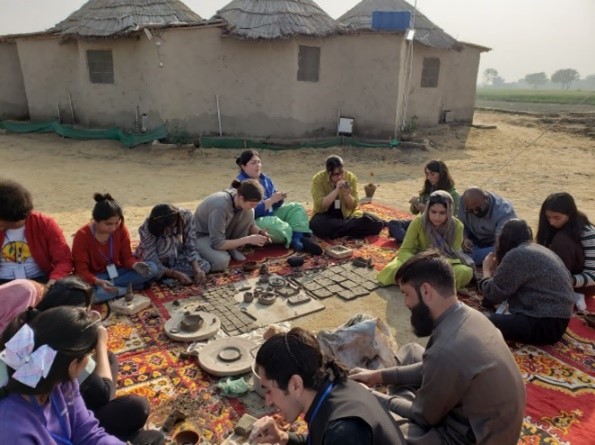

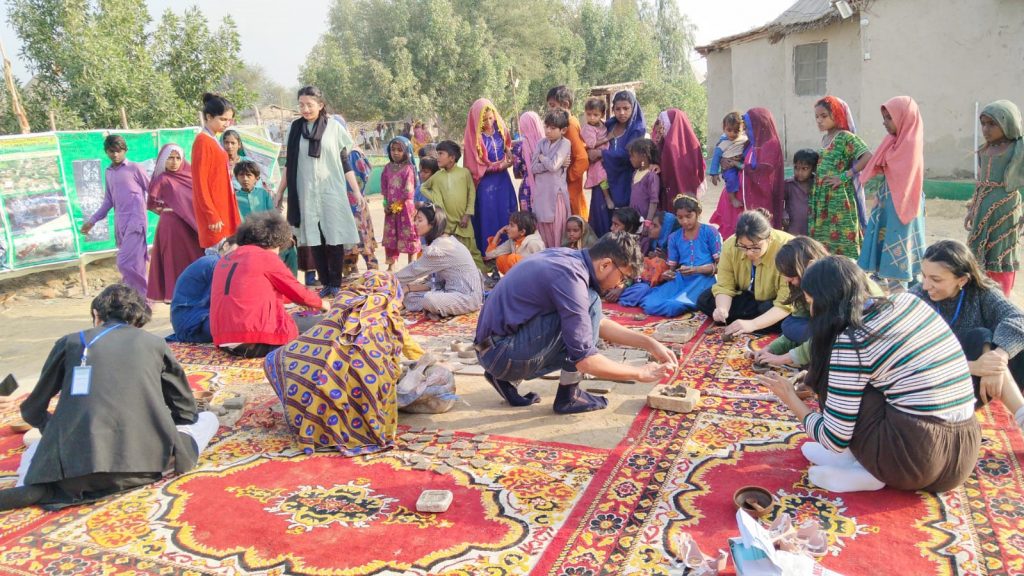
Three workshops from 2022-2024
Three workshops took place: December 2022, September 2024 and January 2024. Each brought together a diverse group of students, both international and Pakistani, to learn from the work supported by Yasmeen’s Pakistan Heritage Foundation.
Delegates spent 1-2 weeks embedded in Yasmeen Lari’s innovative programmes in Sindh, focusing on Pono village and its surrounding villages, such as Jaloo Jamadar and Kewal Goth. They contributed to ongoing projects in local infrastructure, including designing bamboo-based furniture, researching flood-resilient and traditional design in housing and construction, learning about the bamboo-based LOG (Lari OctaGreen) houses introduced by Yasmeen Lari, and assisted in the construction of a local school based on the LOG house design.
Other activities included pottery, and lime brick making, hazard mapping and disaster risk assessments in surrounding villages to understand the challenges posed by floods and other natural disasters. Participants also focused their efforts on researching and mapping out the activities, workshops and projects future climate volunteers could undertake to contribute to locals’ ongoing efforts in disaster resilient design.
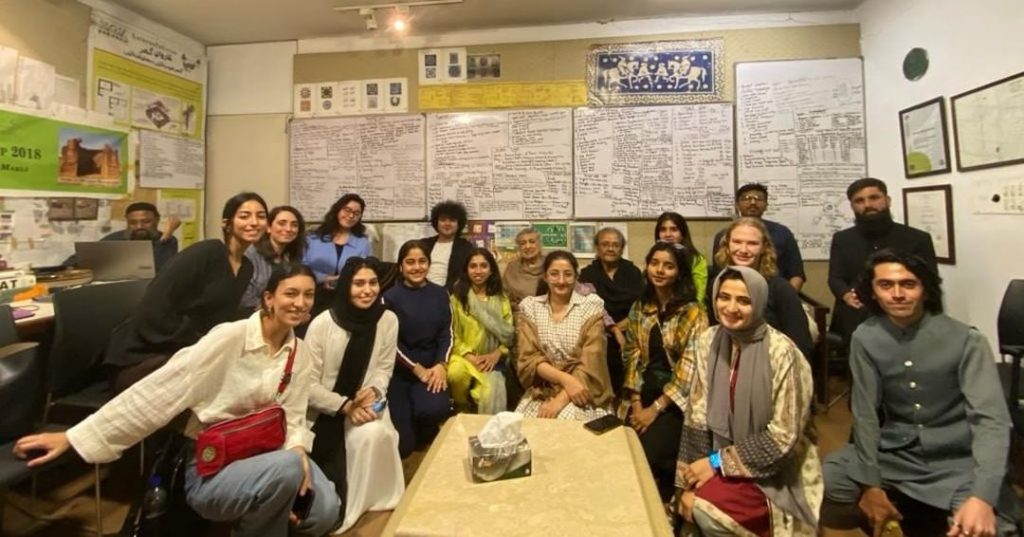
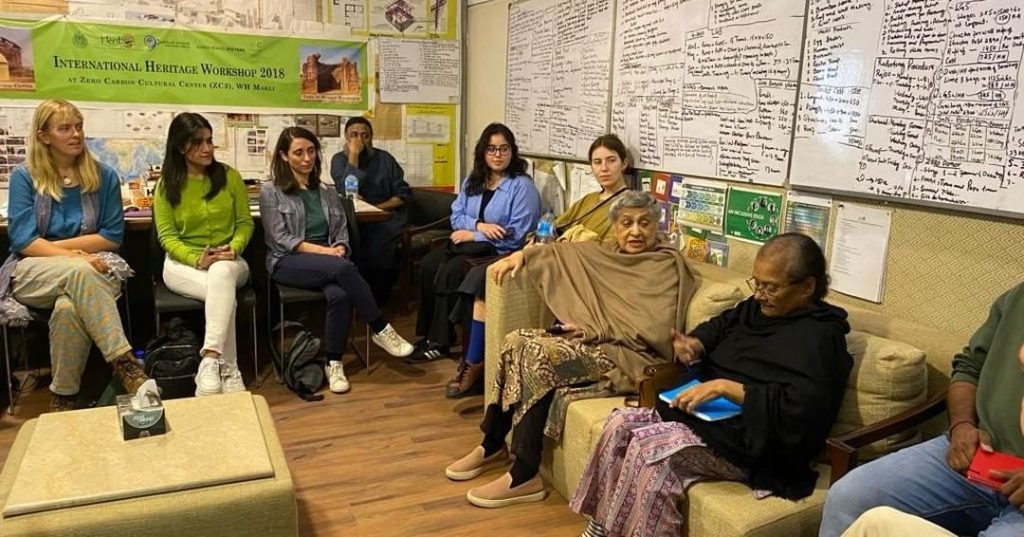
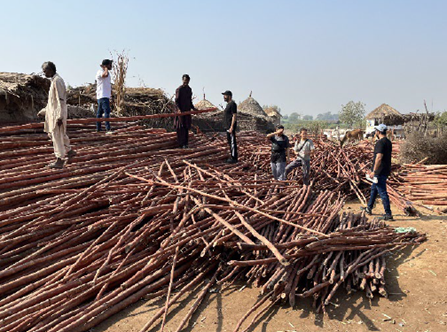

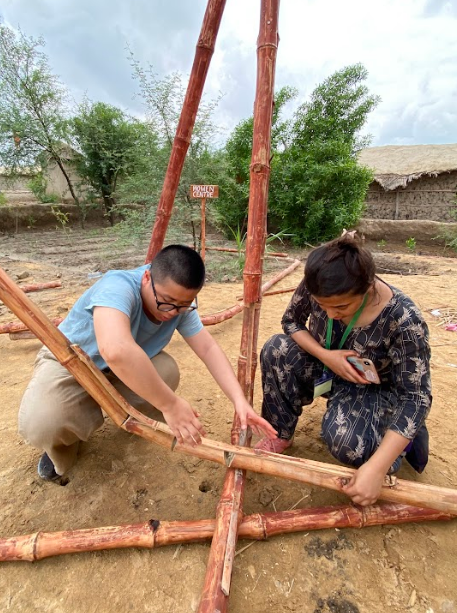
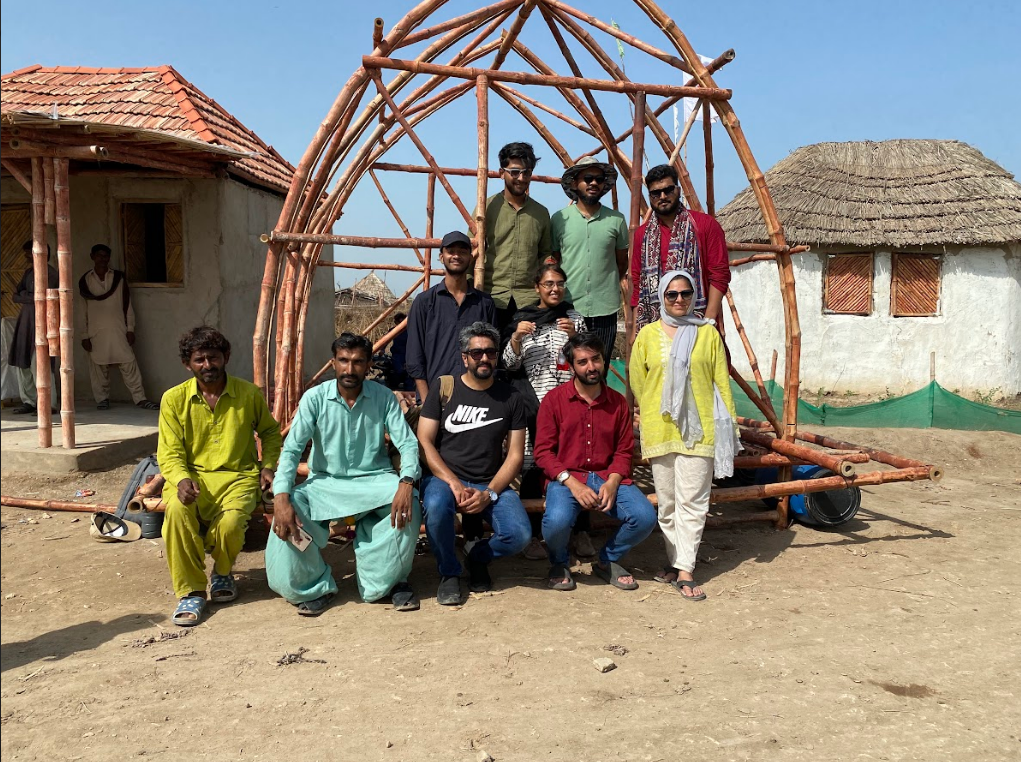
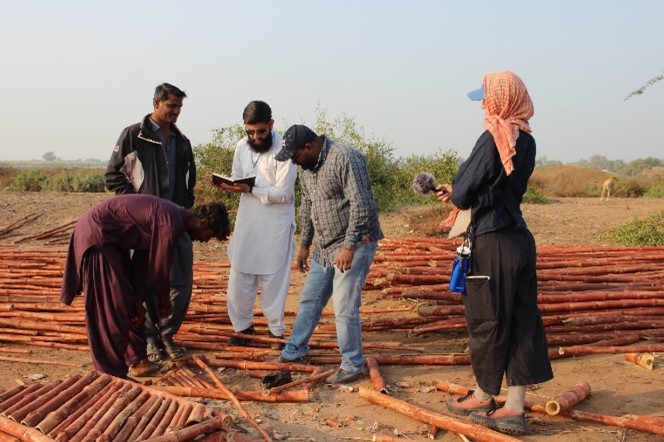
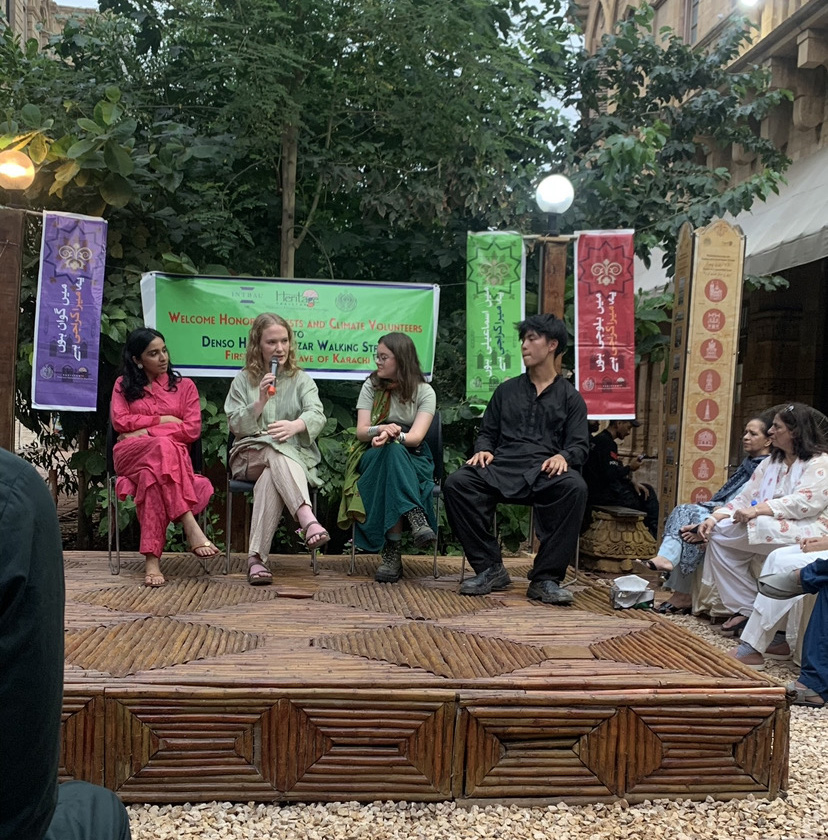
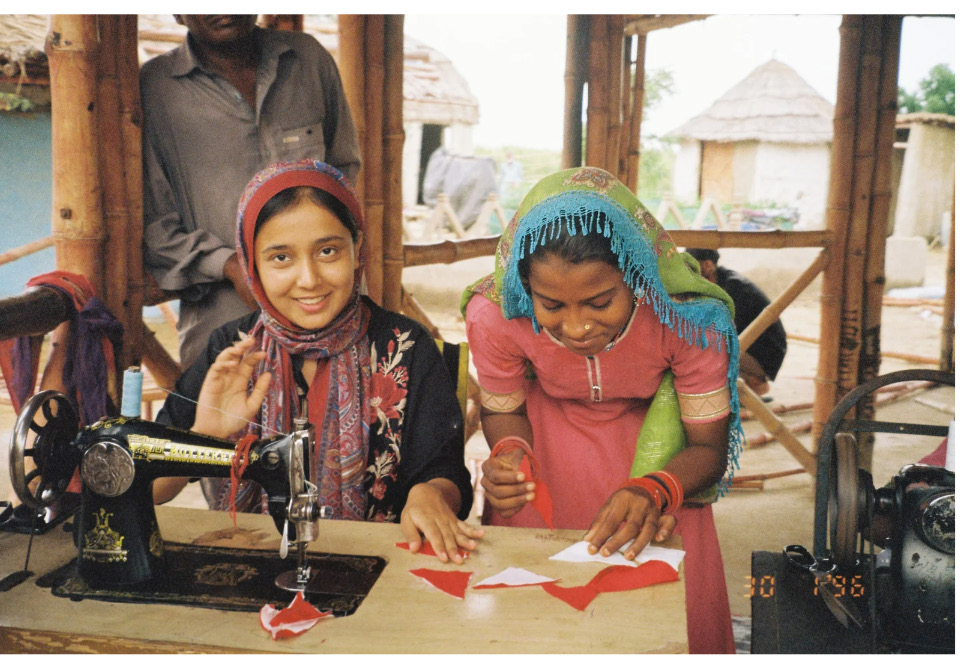
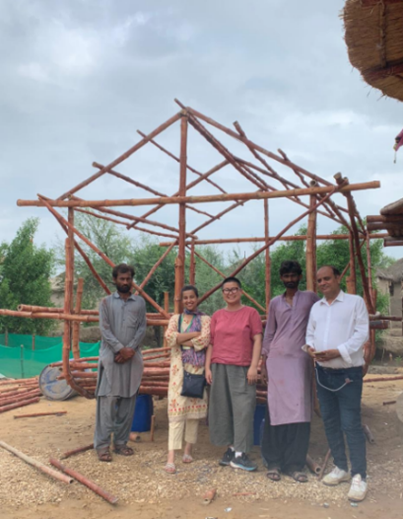
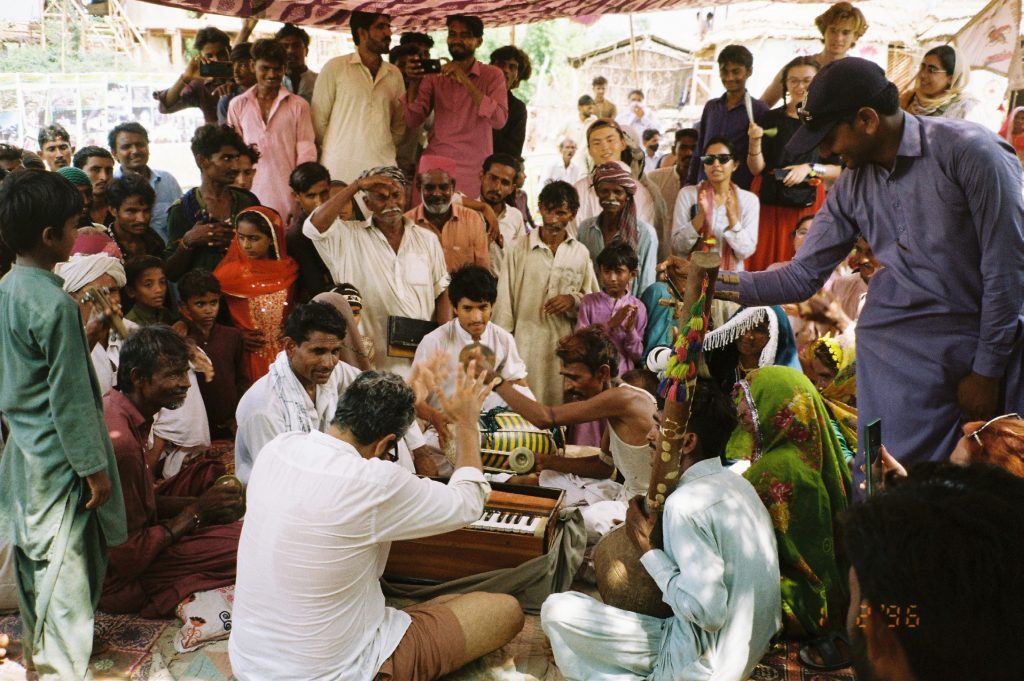
Climate Volunteer Programme in today’s context
The Heritage Foundation of Pakistan’s approach moves away from conventional charity models, which often perpetuate dependency, and instead focuses on empowering local communities. The workshops provide a platform for participants to learn climate-resilient construction techniques, while locals benefit from enhanced capacity building and the opportunity to co-create sustainable solutions for their villages. These initiatives are not just about rebuilding structures; they are about rebuilding lives, fostering self-reliance, and promoting social equity.
The workshops exemplify the potential for international collaboration in tackling global challenges. Volunteers return home with not only a deeper understanding of humanitarian architecture but also a renewed commitment to incorporating these principles into their own work.
One of the participants shared their experience learning from Yasmeen Lari’s humanitarian work:
Even with my theoretical knowledge, seeing grassroots anti-crisis action in practice for the first time was eye-opening. I realised how important it is to approach humanitarian programs carefully, ensuring we don’t take away people’s sense of control and strength. Instead, we can support them by showing how they can care for themselves, their loved ones, and their environment. This approach helps individuals in crisis become a community that supports each other and works together.

Programme legacy
As part of ensuring our ongoing impact, INTBAU and the Heritage Foundation of Pakistan will continue to support graduates of the Pakistan Climate Volunteering Workshop as they adapt their learning from Pakistan to reflect their local contexts.
For more information about ongoing support via INTBAU, please sign up as a free member on our website, to receive our email updates.
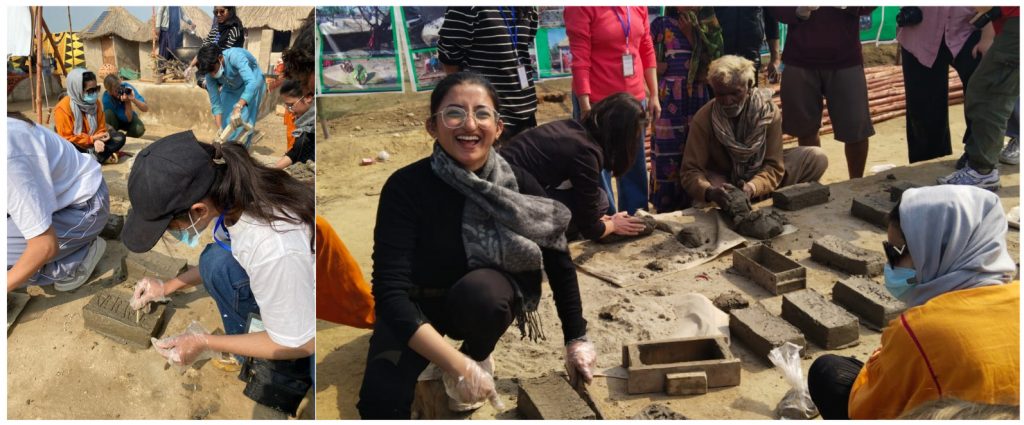
A transformative experience:
My time in Pono has been a deeply rewarding experience that has broadened my understanding of life in challenging climatic conditions and how people adapt to become more resilient. The connections I’ve made with fellow volunteers, coordinators from the Heritage Foundation Pakistan and the University of Lahore, and the locals will always be special to me. This experience has strengthened my belief in bottom-up approaches and the impact of architecture and teamwork in creating positive change, especially for vulnerable groups like women in Pono. I’ve also learned the importance of empathy and compassion and the need to step outside my comfort zone to grasp how climate change affects others. As I move forward, I look forward to continuing my contributions to the community through future collaborations and engagement.
Empowering communities through local solutions:
My biggest take away from the workshops was understanding that communities can be genuinely empowered by embracing local materials, techniques, and disaster preparedness, as these are the sustainable tools needed to address the growing threats of climate change. You can build or rebuild communities with simple ideas, along with dedication and compassion. The climate needs more volunteers like us and organisations like yours.
